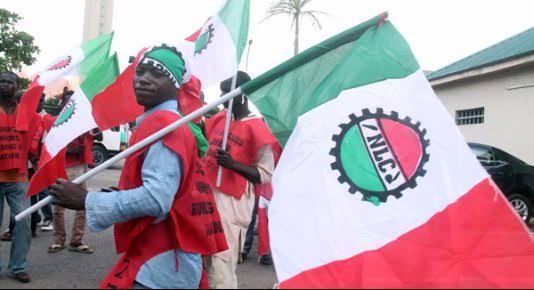Nearly eight hours into the warning strike, there is power outage in most parts of the country as electricity workers obeyed the call by the Nigeria Labour Congress (NLC) to embark on a 2-day warning strike.
Banks closed shop, catching many unawares; while the airports were a shadow of themselves as the airspace remained substantially quiet for most parts.
But there was an added reason for many Abuja residents to gnash their teeth. The strike did not stop the bulldozers that went to parts of the city pulling down illegal structures, shutting down businesses, and throwing many into the streets.
It was the turn of Galadimawa District, especially the huge roundabout area on Tuesday. Other parts around the airport bore the brunt of the heavily armed team of demolition men on Monday.
To be fair to the Minister of Abuja, Barrister Nyesom Wike, the demolition exercise was on before he came in, but the speed and intensity have increased under him. Places hitherto identified before he came, but which demolition were put on hold, or on in slow motion, have come under the limelight of the government.
A report of tells the story of the capital city’s residents who trekked long distances. Security forces also mounted positions from Monday night and restricted commercial motorcyclists and trycyclists from having a free rein on the city roads, as they previously did.
Below is an Independent TV capture of the demolition exercise:
The strike across the country is a consequence of the NLC’s decision to boycott the meeting convened by the Minister of Labour and Employment, Mr. Simon Lalong, to avert the two-day warning strike.
Last Friday, NLC issued the two-day warning strike notice over hardships caused by the removal of petrol subsidy. Premium Motor Spirit (PMS – petrol) which cost less than N200 per litre now cost N617, causing a spiralling cost of living crises.
Lalong’s plea for a 2-week breather for government to get its act together was ignored by the labour unions under NLC.
He said the government set a two-week timeline on wage award, tax exemptions and allowances to public sector workers to cushion the pains of the subsidy removal.
“We agreed that there should be no strike within the two week period while we’re doing our deliberations and working towards realising some of these objectives,” he added.
Affiliate unions of the NLC, including the National Union of Air Transport Employees, the Association of Nigeria Aviation Professionals, the National Association of Aircraft Pilots and Engineers, among others have, in a joint circular, directed all stakeholders in the aviation sector to comply with the NLC’s directive to join the strike.
The Trade Union Congress (TUC) led by its President Festus Osifo attended the meeting with government officials.
Osifo said the TUC leadership would continue to engage with the federal government to ensure that its demands are addressed.
He said, “In the palliatives that were rolled out, we’ve not seen anything put in place for federal workers. We need a wage award. The palliatives rolled out by the government are not far – reaching. We believe that the government can do much more.”
In a communique released on Monday by the TUC at the end of its National Executive Council meeting held on Sunday, the TUC said some of the steps taken by the government to cushion the effects of subsidy removal on workers were welcomed.
It urged the government to increase the amount provided for palliatives as the N5bn given to each state was “grossly inadequate.”
“That palliatives in themselves do not solve the long term challenges or hardship faced by the people, such long lasting programmes and initiatives should be evolved that will properly address the sufferings of the people in the long term,” the communique read in part.

